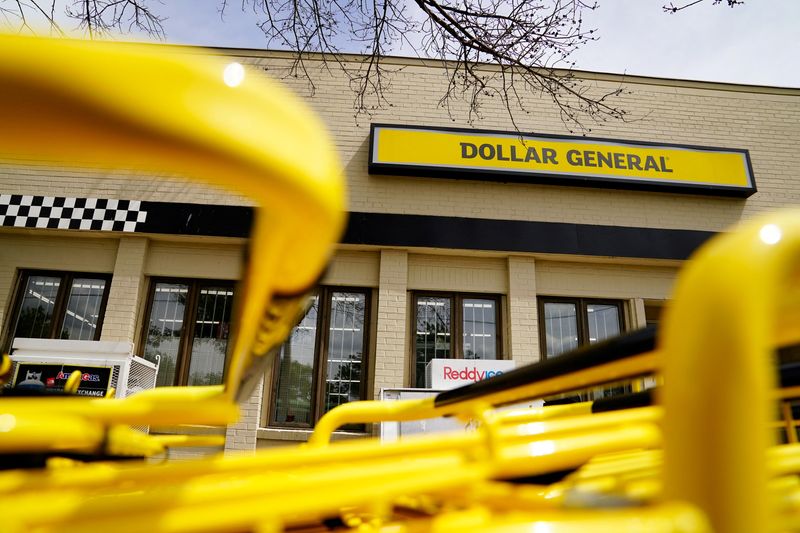By Siddharth Cavale
NEW YORK (Reuters) - Earnings from retailers this week illustrated a split in shopping patterns of more- and less-affluent Americans dealing with the highest inflation in four decades.
As high inflation has lifted prices of everything from TVs to toothpaste, lower-income consumers have curbed their spending habits, according to stores that cater to them. Higher-income shoppers have shown resiliency, snapping up tailored suits, designer gowns and footwear, according to the department stores that cater to them.
On Thursday, Dollar General (NYSE:DG) said shoppers were purchasing more food and beverage products instead of apparel, home and seasonal products. Rival Dollar Tree (NASDAQ:DLTR) said shoppers were responding "favorably" to its new "greater value" products and its broader range of items priced at $3 to $5.
Stores under the Dollar Tree banner delivered their strongest quarter in company history. Same-store sales surged 11.2%.
At department store operator Macy's (NYSE:M), which tends to draw middle- to higher-income consumers, shoppers spent money on non-essentials such as tailored suits, gowns and beauty products.
Sales at its upscale Bloomingdale’s department stores rose 28% in the first quarter, while they rose 25% at its luxury beauty outlet Blue Mercury. Macy's CEO Jeff Gennette said that at households earning more than $75,000 yearly, the customer was "very healthy, and spend levels were quite strong."
Although households earning less than $75,000 yearly were "most affected" by inflation, Gennette said, they spent more time shopping at Macy's discount outlets.
Macy's re-affirmed its full-year sales guidance and boosted its earnings forecast after several other retailers, including Walmart (NYSE:WMT), Target (NYSE:TGT) and rival Kohl's (NYSE:KSS), had cut forecasts, citing inflation, inventory and supply chain issues.
Macy's rival Nordstrom (NYSE:JWN) also bucked the trend of gloomy outlooks, issuing a robust increase to its forecast.
Michael Witynski, Dollar Tree's CEO, said he was ramping up investments in labor, distribution and its supply chain.
"We are taking the necessary actions now to position ourselves for accelerated growth in what I view as the most attractive sector in retail, especially in the current macro environment," he said on Thursday.

Bigger rival Walmart disclosed in its earnings last week that many shoppers were saving money by choosing more store-brand, "private-label" lunch meat, deli, bacon and dairy items. Many lower-income shoppers also shifted to buying milk in half-gallon rather than full-gallon containers, Walmart said.
But even at Walmart, some more-affluent shoppers bought higher priced items such as gaming consoles and patio furniture.